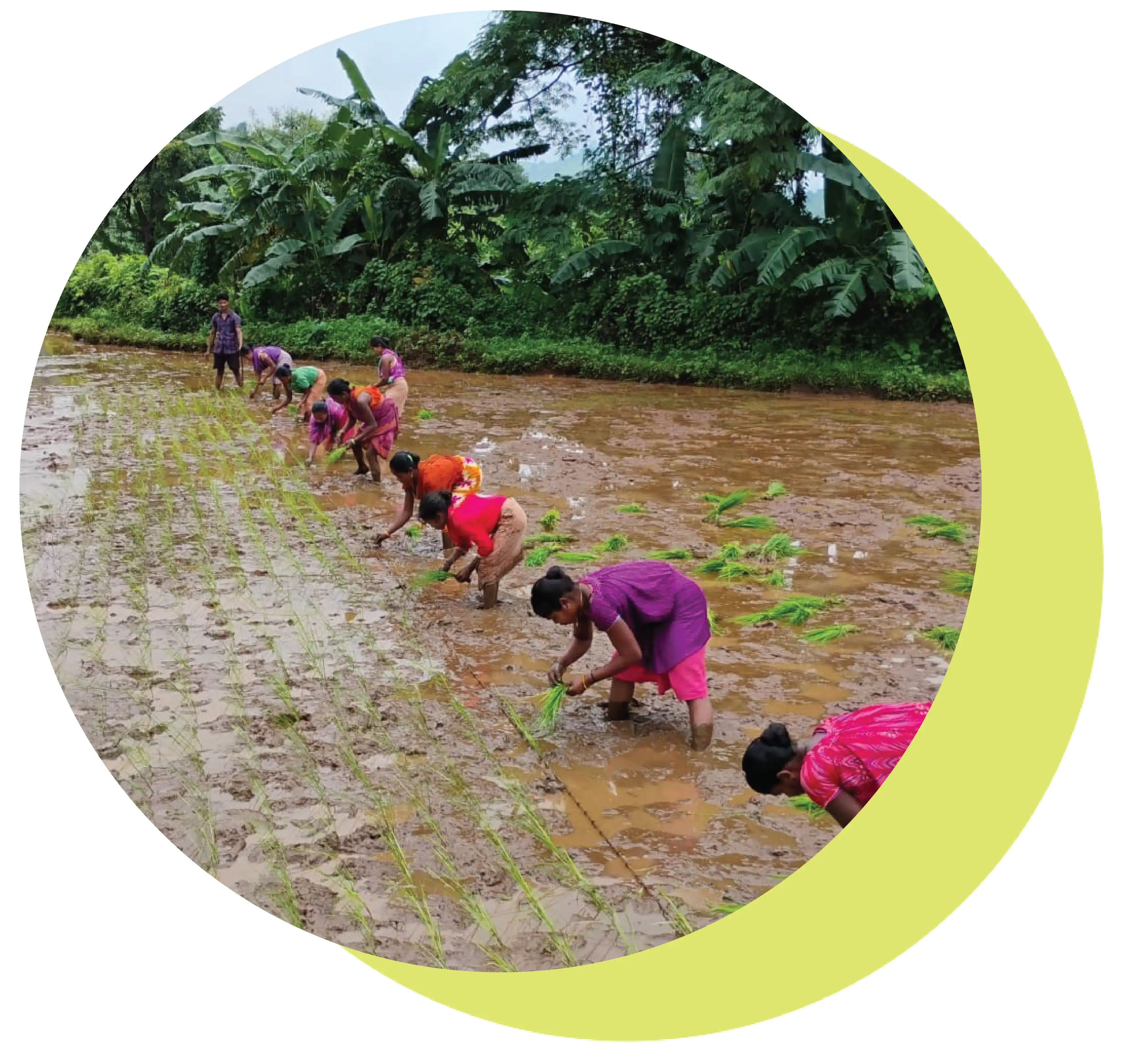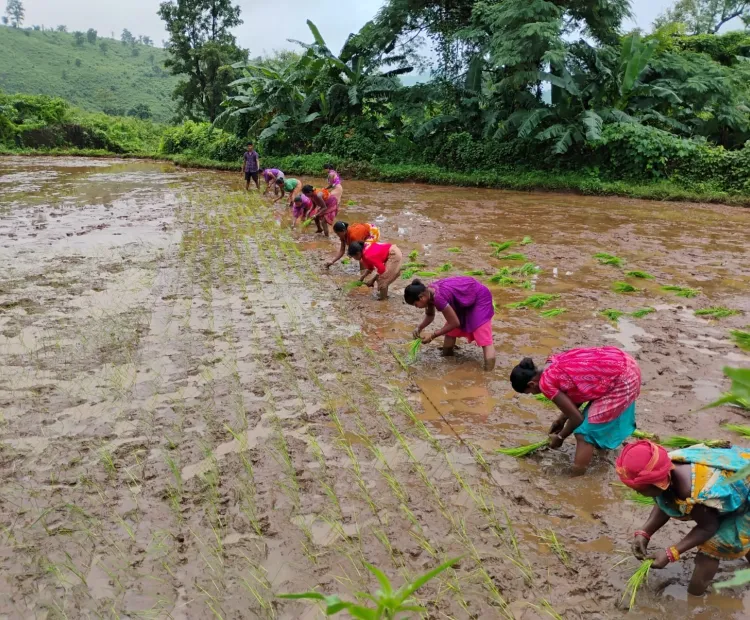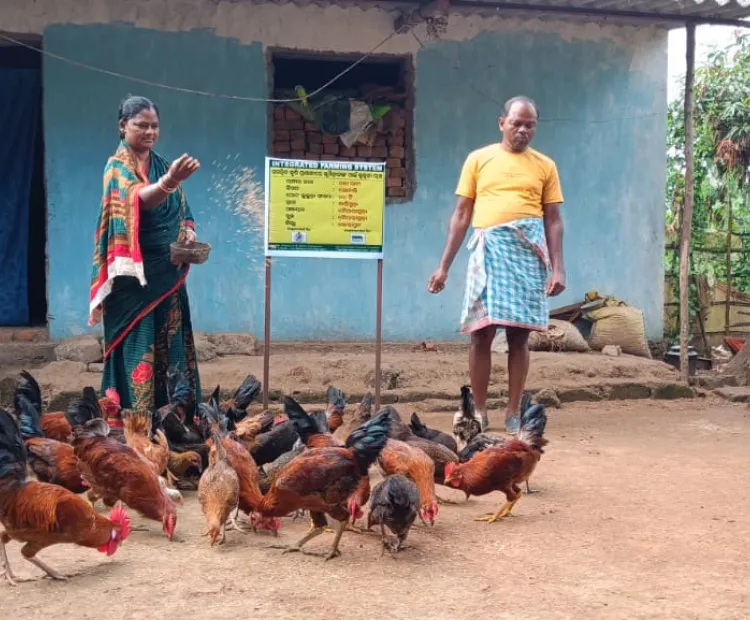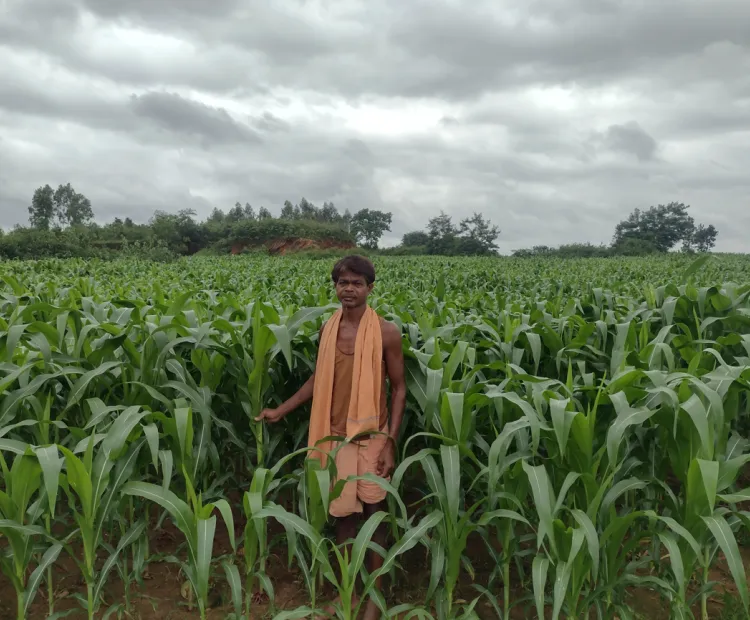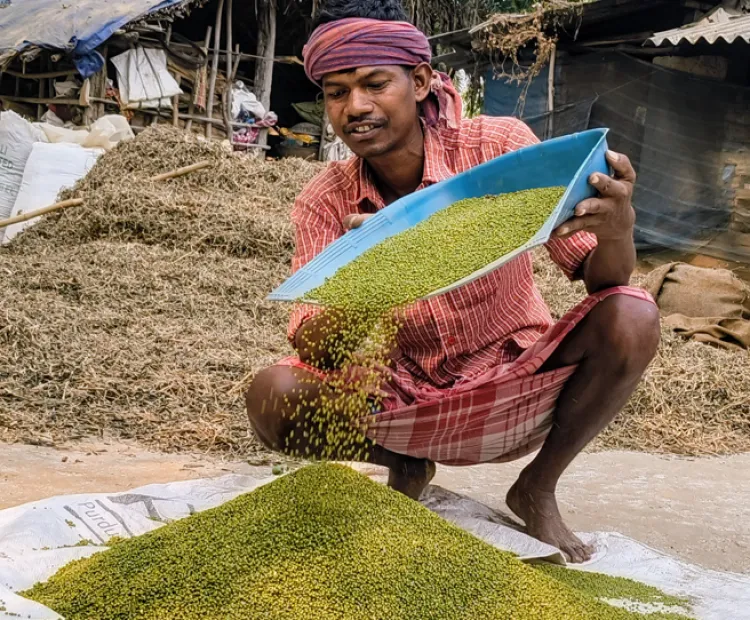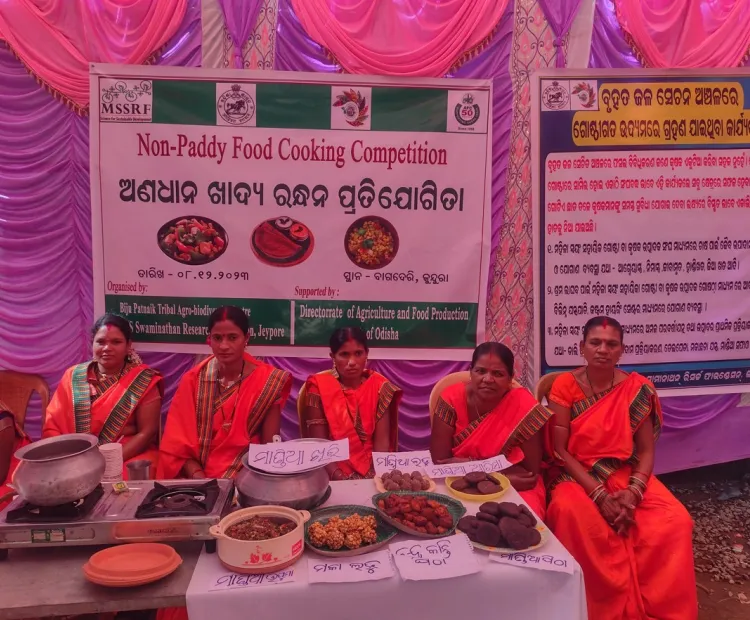Funded by/supported under the scheme: ICAR-IIRR-TSP
Location: Koraput, Malkangiri and Rayagada Aspirational Districts of Odisha
Project Period: April 2017 to 2027
Project Brief:
M. S. Swaminathan Research Foundation (MSSRF) works with a vision to promote research on sustainable agriculture and rural development. Within the domain of sustainable agriculture, the TSP Rice Project is one of the key initiatives. This project has focused on paddy cultivation across 30 villages in four blocks of the Koraput District, namely Kundra, Koraput, Dasamantpur, and Lamtaput.
With financial support from ICAR, the project focuses on Cultivation and Consumption of rice to enhance the economic well-being of tribal communities. The Koraput district is predominantly inhabited by tribal populations, where agriculture remains the primary occupation, often supplemented by wage labor.
The unavailability of quality seeds and lack of knowledge on improved cultivation practices are major challenges faced by rice-growing farmers in the region. To address these issues, the TSP Rice Project supplies quality improved seeds, small agro-equipment, and bio-inputs while building the capacity of farmers through scientific and technical support. This holistic approach aims to uplift the socio-economic conditions of tribal farming communities.
Objective of the Project:
- To introduce the latest improved rice varieties and modern production technologies to enhance nutrition and food security.
- To empower tribal farmers with updated knowledge, skills, and input support for improved paddy cultivation.
Overview of the Intervention:
Four blocks of the Koraput district were selected for implementing improved paddy cultivation practices. A total of 293 farmers from 30 villages were selected for the 2024-2025 Kharif season, covering an area of 200 acres. Demonstrations of advanced agricultural techniques were conducted as part of the intervention.
Activities of the Project:
- Supply of quality improved paddy seed varieties.
- Supply of bio-inputs for sustainable rice cultivation.
- Distribution of small agro-equipment such as sprayers, weeders, containers, sickles, tarpaulins, etc.
- Capacity building of farmers through training on improved paddy cultivation practices.
- Establishment of paddy processing units at the village level.
Outcome of the Project:
The project has helped farmers access quality improved seed varieties, which has resulted in increased crop yield and household income. It has also supports year-round access to staple food (rice) for farm families.
Household rice consumption has increased, and the surplus produce could be sold at government mandis at the Minimum Support Price (MSP), providing farmers with better market opportunities.
The project has thus supported farm families by:
- Enhancing crop yield and improving food security.
- Building farmers' skills in improved paddy cultivation practices.
- Reducing manual labor through the provision of small agro-equipment.
- Creating opportunities for additional income through surplus sales.
